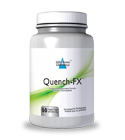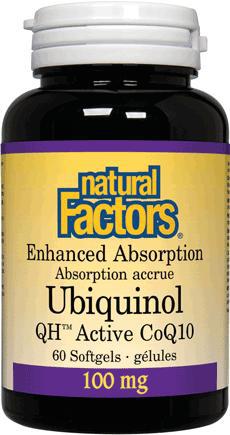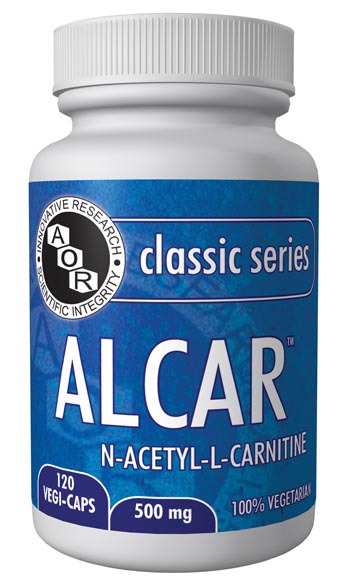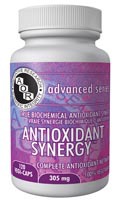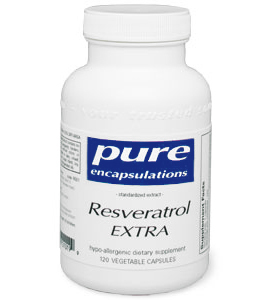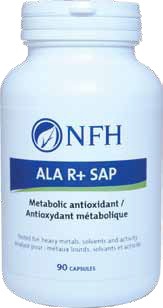What Supplements are Good for Anti Aging? | 10 Ways to Look Younger Naturally

How to Reverse Aging and Stay Young Even In the Old Age

Aging and the questions about how we age and the reasons of aging has been a fascinating topic in medicine. Scientists and researchers are increasingly successful at finding the age related changes in human. To find out the biological causes of age related changes, scientist are looking deep into our cells searching for mechanisms or pathways that lead to aging.
Part of the science investigates the genes of those who live long to find the genes of aging or long life. However, it soon became apparent that there are multiple of genes involved and the way they respond to the triggers play an important role in the process.Our cells are constantly affected by their environment. Factors such as infections, injuries, stress, and food are affecting our cells.Our cells respond to theses triggers trough biological pathways involved in metabolism, regulation of genes, and transmitting signals. All of these biological pathways are considerably important to aging.
The new area of research looks at how the environment, over period of time can affect the genes' function influencing our health and aging. In fact, the chemical modifications on the DNA or those proteins that communicate with the DNA will tell our genes what to do, and they are very well affected by our lifestyle, the food we eat and drink, medications, pollution, and many more.
Over time our DNA accumulates damages which are normal. Fortunately there are powerful repair mechanisms in our cells to repair the damage, but gradually our body loses its ability to fix the damages or the amount or type of damages are beyond repair which it has been linked to the aging process and health; also, mistakes during DNA repair can shorten the lifespan.
 In addition, the more the cells divide to regenerate new cells, the
more they get exposed to DNA damage. All of our chromosomes are protected by a
part called
Telomere located at the
end of each chromosome. Each time cells
divide the Telomeres get shorter and
shorter to the point that they will not provide protection to the chromosome. At this stage, cells have tree
possibilities; to stop replicating but stay functional (Senescent), to proceed
to self death (Apoptosis), or to continue dividing and form abnormalities like
cancers.
In addition, the more the cells divide to regenerate new cells, the
more they get exposed to DNA damage. All of our chromosomes are protected by a
part called
Telomere located at the
end of each chromosome. Each time cells
divide the Telomeres get shorter and
shorter to the point that they will not provide protection to the chromosome. At this stage, cells have tree
possibilities; to stop replicating but stay functional (Senescent), to proceed
to self death (Apoptosis), or to continue dividing and form abnormalities like
cancers.
While our body need food to turn to energy for survival, metabolizing the food and extracting energy from it causes stress to the body. Studies have shown a calorie restricted diet with a balanced amount of protein, fat, vitamins and minerals could increase the life span and delay the onset of age related diseases substantially. Restricted calorie diet in human trail during one year resulted in lower fasting blood sugar, lower cholesterol, lower body fat, much improved mitochondrial function, and less DNA damage.
Calorie restricted but balanced diet in human provides its positive effects on the body through several ways or combination of mechanisms such as; metabolizing fewer calorie results in less oxidative damage to the cells, it promotes production of some proteins that allow the body to better fight diseases or other stresses, it also increases the production of type of protein in the brain (BDNF) that protects the brain cells against degeneration and dysfunction.

Resveratrol is a compound found in higher amounts in purple grapes. Trans resveratrol is shown to be the more biologically active form of this compound. It is able to partially mimic the effects of calorie restricted diet on genes. Studies on mice suggested that supplementing with resveratrol while on a high fat and high calorie diet not only reduced the negative effects of the diet but also it prevented the age and obesity related decline in heart function. Mice on resveratrol had a better bone health, reduced cataract formation, and much better balanced and motor coordination. Resveratrol does not affect all the aspects of the aging process but it improves the health span resulting in a better life span.
Cells are required to produce energy to function and for that they contain powerhouses called Mitochondria. Mitochondria through a complex process produce energy from the food. This process is called cellular respiration. By products of cellular respiration includes highly reactive molecules of Free Radicals formed within the mitochondria. Free Radicals are very damaging to the cells components, proteins, genetic material including DNA and RNA. Mitochondria to protect themselves against destructive free radicals produce and use antioxidant enzymes and co-enzymes.
Recently the studies show that In the aging tissues mitochondria are unable to produce energy efficiently and can't neutralize the free radicals resulting in wide range of changes in the mitochondria and its DNA (mtDNA). Mitochondrial dysfunction is linked to many diseases such as diabetes, Alzheimer's, Heart disease, and more. Researchers have discovered that damages to the mitochondria are detectable years before affecting its DNA permanently, and more importantly the initial damages are reversible. Many researches are indicating that the health of the mitochondria is very much related to the lifestyle and diet.

Coenzyme Q10 (CoQ10) plays an important role inside the mitochondria providing assistance in both efficient energy production and neutralizing free radicals. This is why the CoQ10 presents in a very high concentration in certain energy intensive tissues like heart muscle, brain, liver, and kidneys. Clinical studies suggest that supplementing with CoQ10 decreases the free radical damage, improves energy production, and increases the lifespan. It has become more evident that restoring the CoQ10 levels in mitochondria slows down and even reverses the effects of aging. Co Q10 in the form of Ubiquinol is eight times more stable in the blood than its Ubiquinon form.
PQQ (pyrroloquinoline quinone) is an important Coenzyme in cell signaling mechanisms affecting mitochondrial function and protecting cells against oxidative stress. Many studies support the anti aging benefits of PQQ by promoting mitochondrial health. PQQ can't be synthesized by our body and should be obtained through diet and supplementation. PQQ is a stable water soluble compound and easily absorbed via supplementation. PQQ not only acts as a powerful antioxidant, but also it participates in cell energy production as well as helping with creation of new mitochondria in the cells, PQQ potentially reverses the age related diseases like heart disease, Alzheimer's, and Parkinson's.
Lipoic acid is another compound that naturally presents in mitochondria. Lipoic acid like COQ10 helps to improve the energy production in the Mitochondria. Studies show that supplementing with Lipoic acid improves the mitochondrial function, and provide protection against free radicals in the aging organisms. R lipoic acid is the most bio-available form of lipoic acid. R lipoic acid effectively reduces the symptoms of diabetics' neuropathy, it reverses the age related liver cell damage, and it is also seen to help with relieving migraine headaches due to mitochondrial dysfunction.
Another compound to boost the mitochondrial function is L Carnitine. L Carnitine is necessary to transport the fatty acids to the mitochondria to be used for energy production. L Carnitine level decreases by aging. Acetyl -L- Carnitine is better absorbable form of L Carnitine via digestive system. Several studies indicate that supplementing with Acethyl L Carnitine increases the Alzheimer's patients respond to their medication, and may slow down the Alzheimer's progression. It increases the activity of heart , and brain mitochondria.
Aging has been defined as a progressive, generalized impairment of function that results in vulnerability to the environmental challenges and growing risk of disease and death. Evidence shows that age related mitochondrial dysfunction which leads to DNA damage and cellular death, could be prevented and reversed by providing early and continuous support to our mitochondria. By Choosing a lifestyle that includes consumption of fresh fruits and vegetables, avoiding high sugary foods, controlling of appetite, and taking supplements that help our mitochondria to repair and regenerate, we are able to optimize our mitochondria's health which is eventually results in a long and healthy life.
Articles and products featured by Health Palace are collected from a variety of sources and are provided as a service by Health Palace. These newsletters, while of potential interest to readers, do not necessarily represent the opinions nor constitute the advice of Health Palace. Presented materials are only for information purposes and do not intent to treat, cure, or prevent any disease.
References:
- Austad, S.N., “Comparative Biology of
Aging,” Journal of Gerontology: Biological Sciences, 64A(2): 199-201, 2009.
- Bartke, A., “The Somatotropic Axis and Aging: Mechanisms and Persistent Questions about Practical Implications,” Experimental Gerontology, 44(6-7): 372-374, 2009.
- Barzilai, N. and Bartke, A.,
“Biological Approaches to Mechanistically Understand the Healthy Life Span
Extension Achieved by Calorie Restriction and Modulation of Hormones,” Journal
of Gerontology: Biological Sciences, 64A(2): 187-191, 2009.
- Colman, R.J., Anderson, R.M., Johnson,
S.C., et al., “Calorie Restriction Delays Disease Onset and Mortality in Rhesus
Monkeys,” Science, 325: 201-204, 2009.
- Cox, L.S. and Mattison, J.A.,
“Increasing Longevity through Caloric Restriction or Rapamycin Feeding in
Mammals: Common Mechanisms for Common Outcomes?” Aging Cell, 8: 607-613, 2009.
- Garinis, G.A., van der Horst, G.T.J.,
Vijg, J., and Hoeijmakers, J.H.J., “DNA Damage and Ageing: New-Age Ideas for an
Age-Old Problem,” Nature Cell Biology, 10(11): 1241-1247, 2008.
- Kennedy, B.K., “The Genetics of Ageing:
Insight from Genome-Wide Approaches in Invertebrate Model Organisms,” Journal
of Internal Medicine, 263: 142-152, 2008.
- Baur, J.A., Pearson, K.J., Price, N.L., et al., “Resveratrol Improves Health and Survival of Mice on a High-Calorie Diet,” Nature, 444: 337-342, 2006
- Pearson, K.J., Baur, J.A., Lewis, K.N.,
et al., “Resveratrol Delays Age-Related Deterioration and Mimics
Transcriptional Aspects of Dietary Restriction without Extending Life Span,”
Cell Metabolism, 8: 157-168, 2008.
- Khrapko, K. and Vijg, J.,
“Mitochondrial DNA Mutations and Aging: Devils in the Details?” Trends in
Genetics, 25(2): 91-98, 2009.
- Pedersen, P.L., “Mitochondrial Matters
of the Heart: A Plethora of Regulatory Modes to Maintain Function for a Long
Lifetime,” Journal of Bioenergetics and Biomembranes, 41: 95-98, 2009.
- Terry, D.F., Nolan, V.G., Andersen,
S.L., et al., “Association of Longer Telomeres With Better Health in
Centenarians,” Journal of Gerontology: Biological Sciences, 63A(8): 809-812,
2008.
- Conley KE, Amara CE, Jubrias SA, Marcinek DJ. Mitochondrial function, fibre types and ageing: new insights
from human muscle in vivo. Exp Physiol. 2007 Mar;92(2):333-9.
- Hagen TM, Ingersoll RT, Lykkesfeldt J,
et al. (R)-alpha-lipoic acid-supplemented old rats have improved mitochondrial
function, decreased oxidative damage, and increased metabolic rate. FASEB J.
1999 Feb;13(2):411-8.
- Shigenaga MK, Hagen TM, Ames BN.
Oxidative damage and mitochondrial decay in aging. Proc Natl Acad Sci U S A.
1994 Nov 8;91(23):10771-8.
- Sullivan PG, Brown MR. Mitochondrial
aging and dysfunction in Alzheimer’s disease. Prog Neuropsychopharmacol Biol
Psychiatry. 2005Mar;29(3):407-10.
- Sohal RS, Forster MJ. Coenzyme Q,
oxidative stress and aging. Mitochondrion. 2007 Jun;7 Suppl:S103-11.
- Rosenfeldt FL, Pepe
S, Linnane A, et al. Coenzyme Q10 protects the aging heart against stress:
studies in rats, human tissues,
- Aejmelaeus R,
Metsa-Ketela T, Laippala P, Solakivi T, Alho H. Ubiquinol-10 and total peroxyl
radical trapping capacity of LDL lipoproteins during aging: the effects of Q-10
supplementation. Mol Aspects Med. 1997;18 Suppl:S11320.
- Quiles JL, Ochoa JJ,
Huertas JR, Mataix J. Coenzyme Q supplementation protects from age-related DNA
double-strand breaks and increases lifespan in rats fed on a PUFA-rich diet.
Exp Gerontol. 2004 Feb;39(2):189-94.
- Kaikkonen J,
Tuomainen TP, Nyyssonen K, Salonen JT. Coenzyme Q10: absorption, antioxidative
properties, determinants, and plasma levels. Free Radic Res. 2002
Apr;36(4):389-97.
- Hosoe K, Kitano M, Kishida H, Kubo H,
Fujii K, Kitahara M. Study on safety and bioavailability of ubiquinol (Kaneka
QH) after single and 4-week multiple oral administration to healthy volunteers.
Regul Toxicol Pharmacol. 2007 Feb;47(1):19-28.
- Belardinelli R, Mucaj A, Lacalaprice F, et al. Coenzyme Q10 improves contractility of
dysfunctional myocardium in chronic heart failure. Biofactors.
2005;25(1-4):137-45.
- Ayaz M, Tuncer S,
Okudan N, Gokbel H. Coenzyme Q(10) and alpha-lipoic acid supplementation in
diabetic rats: conduction velocity distributions. Methods Find Exp Clin
Pharmacol. 2008 Jun;30(5):367-74.
- Rucker R, Chowanadisai W, Nakano M. Potential physiological importance of pyrroloquinoline quinone.Altern Med Rev. 2009;14:268-77.
- Stites TE, Mitchell AE, Rucker RB. Physiological importance of quinoenzymes and the O-quinone family of cofactors. J Nutr. 2000 Apr;130(4):719-27.
- Hara H, Hiramatsu H, Adachi T. Pyrroloquinoline quinone is a potent neuroprotective nutrient against 6-hydroxydopamine-induced neurotoxicity.Neurochemical Research.2007 Mar;32(3):489-95.
- Misra HS,
Rajpurohit YS, Khairnar NP. Pyrroloquinoline-quinone and its versatile roles in
biological processes.J Biosci. 2012 Jun;37(2):313-25.
- Linnane AW, Marzuki S, Ozawa T, Tanaka M. Mitochondrial DNA mutations as an important contributor to ageing and degenerative diseases.Lancet. 1989 Mar 25;1(8639):642-5.
- Rucker RB, Harris C, Chowanadisai W, Slupsky C. Pyrroloquinoline quinone (PQQ) and indicators of antioxidant potential, inflammation and metabolism in humans.FASEB J. 2012 April;26[Suppl]:363.1.
- Tao R, Karliner JS, Simonis U, et al. Pyrroloquinoline quinone preserves mitochondrial function and prevents oxidative injury in adult rat cardiac myocytes.Biochem Biophys Res Commun. 2007 Nov 16;363(2):257-62.
- Ohwada K, Takeda H, Yamazaki M, et al. Pyrroloquinoline quinone (PQQ) prevents cognitive deficit caused by oxidative stress in rats. J Clin Biochem Nutr. 2008 Jan;42:29-34.
- Stites T, Storms D, Bauerly K, et al. Pyrroloquinoline quinone modulates mitochondrial quantity and function in mice.J Nutr. 2006 Feb;136(2):390-6.
- Negrisanu G, Rosu M, Bolte B, Lefter D,
Dabelea D. Effects of 3-month treatment with the antioxidant alpha-lipoic acid
in diabetic peripheral neuropathy. Rom J Intern Med. 1999
Jul-Sep;37(3):297-306.
- Haak E, Usadel KH, Kusterer K, et al. Effects of alpha-lipoic acid on
microcirculation in patients with peripheral diabetic neuropathy. Exp Clin
Endocrinol Diabetes. 2000;108(3):168-74.
- Noland RC, Koves TR, Seiler SE, et al. Carnitine insufficiency caused by aging
and overnutrition compromises mitochondrial performance and metabolic control.
J Biol Chem. 2009 Aug 21;284(34):22840-52.
- Rosca MG, Lemieux H, Hoppel CL.
Mitochondria in the elderly: Is acetylcarnitine a rejuvenator? Adv Drug Deliv
Rev. 2009 Aug 29.
- Carta A, Calvani M. Acetyl-L-carnitine:
a drug able to slow the progress of Alzheimer’s disease? Ann N Y Acad Sci.
1991;640:228-32.
- Long J, Gao F, Tong L, Cotman CW, Ames
BN, Liu J. Mitochondrial decay in the brains of old rats: ameliorating effect
of alpha-lipoic acid and acetyl-L-carnitine. Neurochem Res. Apr 2009
Apr;34(4):755-63.
- Hipkiss AR. Could carnosine or related
structures suppress Alzheimer’s disease? J Alzheimers Dis. 2007
May;11(2):229-40.
- Blagozklonny, M.V. and Campisi, J.,
“Cancer and Aging,” Cell Cycle, 7(17): 2615-2618, 2008.
- Calvanese, V., Lara, E., Kahn, A., and
Fraga, M.F., “The Role of Epigenetics in Aging and Age-Related Diseases,” Ageing
Research Reviews, 8: 268-276, 2009.
- Mattson, M., “Dietary Factors, Hormesis
and Health,” Ageing Research Reviews, 7: 43-48, 2008.
- Campisi, J. and Yaswen, P., “Aging and Cancer Cell Biology, 2009,” Aging Cell, 8: 221-225, 2009
Alpha Science Quench-FX 60 Capsules
|
Natural Factors Ubiquinol QH Active CoQ10 100 mg 120 Softgels |
AOR Alcar 500 mg - 120 Veg Capsules |
|||||||
|
|
|
|
|||||||
|
|
|
|
|
||||||
|
|
|
|
|||||||
AOR Antioxidant Synergy 120 Veg Capsules
|
Pure Encapsulations Resveratrol EXTRA 60 Capsules |
NFH ALA R+ SAP 90 Capsules
|
|
|
|||||
|
Includes the complete "Antioxidant Network," the body's five-member antioxidant defense and recycling system. Most antioxidants lose their protective power once they... Read more |
Resveratrol EXTRA combines 100 mg trans resveratrol per capsule with red wine polyphenols and grape seed extract for healthy cellular and cardiovascular function... Read more |
|
|||||||
|
|
|
Recent Posts
-
Macular degeneration
Macular degeneration which is commonly known as age-related macular degeneration (AMD /ARMD), is a m …7th Sep 2025 -
Maintain A Healthy Heart Rhythm With Integrative Medicine
Maintain A Healthy Heart Rhythm With Integrative Medicine;Usually, abnormal heart rate or arrhythmi …4th Feb 2021 -
How to Prevent Gallstones from Forming? | Natural Supplements for Gallstones
How To Prevent Gallstone Formation?Gallstones are hard deposits made of cholesterol or bilirubin f …4th Mar 2020

